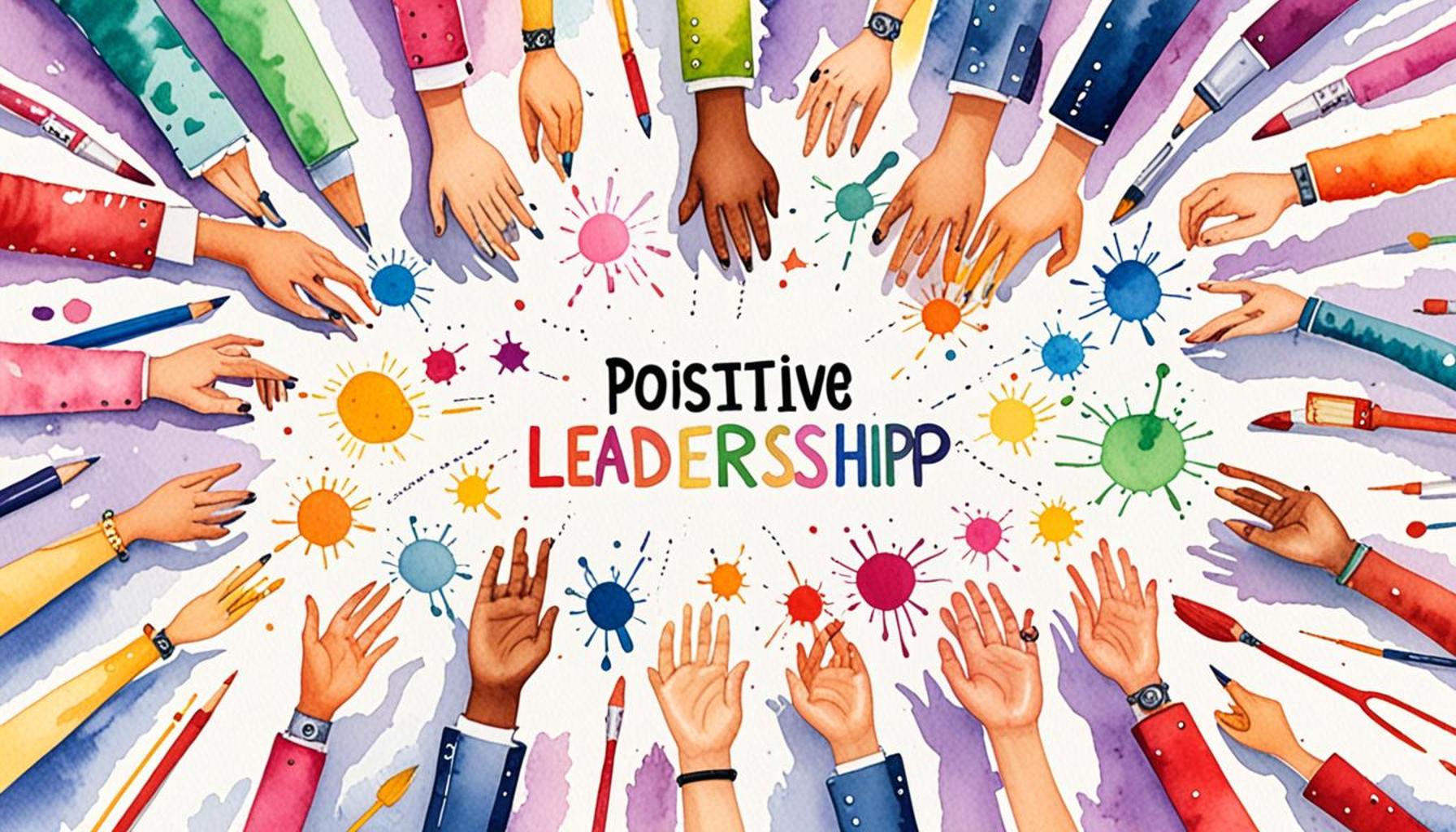How Positive Affirmations Can Help Overcome Fears and Insecurities

The Transformative Power of Positive Affirmations
Fear and insecurity can be overwhelming, often holding us back from reaching our full potential. In a world filled with challenges, negative thoughts can become a significant barrier to personal growth. This is where positive affirmations enter the scene, offering a powerful tool for transformation.
So, what exactly are positive affirmations? They are simple yet profound statements that can reshape our mindset and influence our life trajectory. By consistently repeating these affirmations, we can:
- Boost self-esteem by reinforcing our self-worth. For instance, saying “I am capable of achieving my goals” can empower individuals, particularly in a bustling Nigerian context rife with competition and high expectations.
- Reduce anxiety by shifting focus from fears to positivity. A person might affirm, “I am in control of my thoughts and actions,” which can help mitigate feelings of anxiety during stressful situations, such as job interviews or exams.
- Enhance resilience in the face of life’s uncertainties. Phrases like “I can overcome any challenge” can instill a sense of strength, motivating us to push through struggles, be they personal, academic, or professional.
In Nigeria, where societal pressures often amplify insecurities, harnessing the power of affirmations can be particularly beneficial. The combination of cultural expectations and economic challenges can lead to self-doubt among many individuals. By incorporating affirmations into the daily routine, people can not only challenge these insecurities but also build a sustainable model for inner peace and self-confidence.
Imagine waking up each morning, confidently reminding yourself of your strengths and potential through a simple yet effective ritual. Visualizing yourself as successful can shift the perspective from a fear of failure to a celebration of possibilities. Regularly repeating affirmations can gradually weaken the grip of fear and insecurity, paving the way for a more fulfilled life.
The journey towards self-discovery and empowerment through positive affirmations is compelling and worthwhile. By engaging in this practice, especially in a diverse society such as Nigeria, individuals can foster a collective movement toward mental well-being and confidence. The ripple effect can lead to more supportive communities, where affirming one another becomes a norm and self-doubt gradually diminishes.
In conclusion, the integration of positive affirmations into everyday life is more than just a motivational technique; it is a powerful declaration of one’s worth and potential. As we unlock this self-empowerment, we not only change our own lives but also contribute to a more positive and resilient society.
RECOMMENDED: Check out this similar article
The Mechanism Behind Positive Affirmations
Understanding how positive affirmations work can empower individuals to utilize them effectively in the face of fear and insecurity. These affirmations are not mere slogans; they are statements crafted with intention, designed to rewire our thinking patterns. The practice of repeating affirmations taps into the principles of neuroplasticity—the brain’s ability to change and reorganize itself—allowing us to replace negative beliefs with positive ones.
To grasp the real impact of positive affirmations, it is essential to recognize the cycle of fear and insecurity that many people in Nigeria face. This cycle often begins with negative self-talk, which can stem from societal pressures, economic hardships, or personal experiences. Such detrimental thoughts usually spiral into a lack of confidence, leading individuals to retreat from challenges, opportunities, or personal expression.
However, the power of positive affirmations lies in their ability to disrupt this cycle. By replacing negative thoughts with empowering statements, individuals can cultivate a more resilient mindset. Here are several ways in which positive affirmations can be incorporated into daily life to combat fears and insecurities:
- Morning Rituals: Start the day by affirming your strengths. For example, telling yourself, “I am strong and capable,” can set a positive tone for the day ahead.
- Reflective Journaling: Write down affirmations in a journal. This practice engages both writing and reading, solidifying these positive beliefs in your mind.
- Visual Cues: Display affirmations in prominent places, such as on mirrors or walls. Seeing affirmations daily reinforces their messages and helps counteract negativity.
- Group Affirmation Sessions: Consider practicing with groups, be it friends or community members. Sharing and vocalizing affirmations as a collective can create a safe space that promotes openness and support.
In every corner of Nigeria, fear and insecurity manifest in various forms—from concerns about job stability to societal acceptance. The repetitiveness of positive affirmations serves not just as a mantra but as a tool for reshaping realities and reframing mindsets. This is particularly vital in environments where external judgments can weigh heavily on individuals.
Moreover, the cultural richness of Nigeria offers a unique opportunity for tailored affirmations. For instance, individuals can draw inspiration from their heritage, crafting affirmations that resonate with their traditions, aspirations, and community values. This cultural connection can create a stronger sense of belonging and purpose, further enhancing the effectiveness of affirmations.
The journey towards personal liberation through positive affirmations encourages a paradigm shift from fear towards empowerment. As individuals learn to embrace their strengths, the societal fabric can begin to transform, fostering environments of encouragement and support. Each affirmation can serve not only as a confession of self-worth but as a collective pledge against the pervasive shadows of insecurity.
Continuing the exploration on how positive affirmations can significantly aid in overcoming fears and insecurities, it’s essential to understand the psychological foundation behind affirmations. Engaging regularly in the practice of repeating affirmations can reshape negative thought patterns, leading to a more resilient mindset.
One of the most compelling aspects of this practice is its ability to enhance self-esteem. When individuals recite positive affirmations, they are actively countering the internal dialogue that often fuels self-doubt and fear. This can be particularly effective in situations that provoke anxiety. For instance, someone facing a public speaking engagement may adopt affirmations such as, “I am confident and capable in front of an audience.” This not only builds confidence but also alters the body’s response to stress, leading to improved performance.
Moreover, positive affirmations have been studied for their impact on the brain. Neuroscience research indicates that these affirmations can activate areas associated with self-related processing, making one more receptive to positive experiences and encouraging a constructive feedback loop. As individuals incorporate affirmations into their daily routines, they may find a growing sense of control over their fears, enabling them to face challenges that once seemed insurmountable.
Another critical benefit of affirmations is their role in fostering resilience. Life inevitably presents challenges that test our emotional strength. By grounding oneself in the repeated messages of positivity, individuals can cultivate a buffer against adversity. This practice leads not only to overcoming insecurities but also to developing a more robust sense of identity. As people reaffirm their worth, they build an armor of self-acceptance that helps mitigate the effects of external criticism.
For those unsure where to begin, consider journaling affirmations tailored to personal experiences or hurdles. Reflecting on values or past victories when crafting affirmations can make them resonate more profoundly. Those who commit to this practice often share transformative stories of success, reinforcing the notion that fear can be a formidable opponent, yet through the power of words, one can emerge victorious.
| Category 1 | Category 2 |
|---|---|
| Psychological Impact | Rewires negative thought patterns |
| Self-Esteem Boost | Transforms self-doubt into confidence |
| Resilience Building | Strengthens emotional robustness against stress |
By embracing the power of positive affirmations, individuals not only pave the way for overcoming their fears but also unlock a greater potential that lies within. As you delve deeper into this topic, consider how daily affirmations could change your perspective and equip you with the tools needed to tackle personal insecurities.
YOU MAY ALSO LIKE: Read read another article
The Transformational Impact of Positive Affirmations
As individuals integrate positive affirmations into their daily lives, they often undergo profound transformations that extend beyond mere confidence boosts. For many in Nigeria, the act of verbalizing these affirmations allows them to challenge their internal narratives, confronting fears and insecurities head-on. The journey through this process involves cultivating self-awareness, resilience, and a proactive attitude toward personal growth.
One of the fascinating aspects of positive affirmations is their ability to invoke a sense of empowerment. For instance, in Nigerian society, where communal values are strong, individuals can resonate with affirmations that emphasize collective strength. Statements such as, “Together, we rise stronger,” not only affirm personal capability but also foster a greater sense of unity. This bond can significantly reduce feelings of isolation that often accompany insecurities.
Additionally, positive affirmations can serve as practical mechanisms for coping with stress and anxiety. The pressures of urbanization and economic challenges faced in cities like Lagos or Abuja often heighten levels of insecurity. Practicing affirmations like, “I am capable of navigating challenges,” can provide mental armor against the harsh realities of everyday life. This proactive approach transforms passive anxiety into an active engagement with personal difficulties, allowing individuals to reclaim their narrative.
Scientific backing also supports the efficacy of positive affirmations. Research conducted by social psychologists demonstrates that self-affirmation can bolster self-integrity, reducing the impact of stress and promoting adaptive behavior. Findings indicate that when individuals affirm their values—whether related to family, culture, or personal achievements—they exhibit greater resilience. This results in less susceptibility to fear and self-doubt, which can often paralyze decision-making and hinder progress.
The role of cultural context plays a crucial part in how affirmations resonate. In Nigeria, diverse ethnic backgrounds allow for a variety of affirmation styles that can evoke a deep sense of identity and pride. For instance, an Igbo affirmation such as, “I am a reflection of my ancestors’ strength,” may resonate with individuals, providing a profound personal and communal connection that fosters a positive mindset. This cultural specificity not only enriches the individual’s affirmation experience but also connects them to the legacy of their heritage, making the practice more meaningful.
Moreover, the digital age has made it easier for individuals to access and share positive affirmations, further fueling their potential. Social media platforms and mobile applications dedicated to mental wellness often feature daily affirmations, providing a continuous source of encouragement. Engaging with these online communities can create solidarity among users, illustrating the collective journey toward overcoming fears and insecurities. As individuals share their stories and successes, they reinforce the affirmations in their own lives and inspire others.
The multifaceted nature of positive affirmations emphasizes their potential as not just personal remedies but also communal tools for empowerment. By harnessing the collective strength of affirmations, communities in Nigeria can foster support networks that enable individuals to confront fears and insecurities with renewed vigor and purpose. Whether through personal reflection, cultural resonance, or digital engagement, the journey towards self-empowerment through affirmations promises to be transformative, illuminating new paths to personal growth and resilience.
SEE ALSO: Click here to read another article
Embracing the Power of Positive Affirmations
In conclusion, the journey of embracing positive affirmations offers a compelling avenue for individuals in Nigeria to confront and ultimately overcome their fears and insecurities. By engaging in this practice, individuals not only challenge damaging internal dialogues but also cultivate a stronger sense of self. The nuanced interplay of cultural identity and communal support amplifies the effectiveness of affirmations, creating a robust network of encouragement that resonates deeply within diverse Nigerian communities.
Moreover, the social and scientific acknowledgment of affirmations as powerful tools of resilience further reinforces their relevance in today’s fast-paced world. In cities like Lagos and Abuja, where economic pressures can exacerbate feelings of inadequacy, these affirmations become vital lifelines. By adopting affirmations tailored to personal experiences and cultural contexts, individuals can equip themselves with a mental toolkit designed to navigate the complexities of life.
As the digital landscape continues to evolve, the accessibility of positive affirmations through various online platforms fosters a collective environment for healing and empowerment. The shared journeys within these digital spaces not only validate personal struggles but also inspire transformation, encouraging a culture of growth and resilience. Thus, it becomes clear that integrating positive affirmations into daily routines is not merely a personal endeavor; it is a movement toward communal strength and upliftment.
Ultimately, the potential for positive affirmations to create lasting change is vast and promising. By harnessing this transformative practice, individuals in Nigeria can forge new paths toward self-acceptance, overcoming fears with confidence and securing a more empowered identity in the face of life’s challenges.


